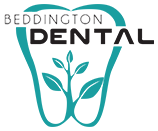Non-Surgical Gum Therapy Near You
Our gums are the surrounding tissues holding your teeth and place and protecting your tooth roots from harm. When the gums themselves experience damage or become diseased, this can quickly become a serious issue if it is not addressed immediately.
Gum disease is more common than many people tend to realize. Visiting a dentist so they can examine your smile and design a customized treatment plan in a timely fashion will ensure that your oral health is fully restored.

What is Gum Disease?
A buildup of bacteria, plaque, and other debris is the primary culprit behind the formation of gum disease. Gingivitis is the beginning stage and often goes unnoticed because it causes little to no pain. Common symptoms include red, swollen, or inflamed gums. Advanced stages of gum disease give rise to more serious problems like bone deterioration and even tooth loss.
The best way to prevent gum disease is to attend routine checkups and cleanings with your dentist. If you are dealing with this issue, they can advise the wisest solution based on your unique requirements.
What is Non-Surgical Gum Therapy?
Depending on the severity of the disease, your dentist may recommend various treatments to get things back under control and help restore your smile. Surgical and non-surgical options are available to you.
Keeping in mind, however, that non-surgical options are the most effective when the disease is not aggressive. Gingivitis can be treated through such means.
Two common non-surgical gum therapy solutions include:
- Medications — This often comes in the form of a topical ointment applied to the infected area. Antibiotic injections may be provided as well. These medications are provided to patients to prevent discomfort and address their symptoms simultaneously.
- Scaling and Root Planing — This may also be considered a deep dental cleaning. Scaling involves removing amalgamated bacteria
from the surface of your smile and along the gum line; root planing entails smoothing out the gum tissue to prevent pockets from arising and encourage reattachment.
Your dentist will walk you through each process and address your questions and concerns. After your session, your mouth may feel sore and tender. Gently cleaning your teeth and staying in communication with your dental team is essential.
Come into Beddington Dental Clinic
If you or a loved one would like to learn more about gum disease, please get in touch with our staff today! We are happy to meet with you and examine your smile. We will let you know whether undergoing surgical or non-surgical gum therapy near you is the best choice for your case.
Call or email us to set up a consultation.
